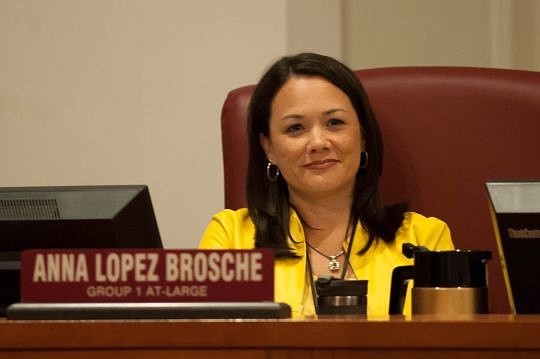
There has been consistent outcry over the years about the city’s public service grants program.
In scarce budget times, there’s been limited funding for nonprofits seeking to provide services.
More so than funding, though, there’s been criticism with how the dollars have been awarded.
City Council member Anna Lopez Brosche has heard it during her first six months in office. Criticism of a lack of transparency and a flawed system.
“You can’t trust the process,” she recalls being told. “You kind of hoped and just crossed your fingers.”
Council member John Crescimbeni has seen the flaws over the years — a problem that’s grown so big it’s almost been a deterrent to tackle.
There have been attempts in the past, but now both council members think progress has been made.
A council subcommittee studying the public service grant process recently wrapped its review, hitting a deadline set for the end of the year.
Four months’ worth of work will be incorporated into a bill to be filed in January that could reform and alleviate many of those concerns.
Crescimbeni said possibly the biggest change is a shift in timeline. Currently, the mayor selects and council confirms amounts nonprofits receive each budget cycle.
Decisions largely are made with the help of the Public Service Grant Council, which grade applications for priority populations like the homeless, low-income families and the elderly.
However, that setup left room for changes, Crescimbeni said. Organizations that didn’t receive funding often would lobby council members to make changes during the budget process.
One of the changes would shift the timing of funding and put more power in the hands of the grant council.
The lump sum dedicated to the nonprofits will be programmed in a single line-item.
It would then be up to the grant council — not City Council — to finalize how the money is spent.
“There’s no meddling,” said Crescimbeni. “We’re out of it.”
Brosche said such a move depoliticizes how grants are awarded and mirrors how the Cultural Council of Greater Jacksonville receives and distributes its funding.
The timeline isn’t the only major fix. Others include:
• The grant council increasing from 13 to 15 members. The boost will help distribute the workload of scoring dozens of applications, Brosche said.
• At least five members will be assigned to a scoring committee. That will help allow for a more varied range of scores.
• The scoring model has changed. The model now in place dropped the highest and lowest scores if they were five points off from the closest score. Combined with so few scores in the first place, that caused an issue. The new model would drop the highest and lowest scores if they are more than 20 points away from the average of all scores.
• Grant council members will be required to attend annual training and will have staggered terms to allow for continuity. Applicants also will have to take part in training. Doing so will provide them with better understanding of the process and requirements.
• There would be an appeal process to challenge grant council decisions. There isn’t one in place now.
The council also has had a lack of members who have participated, which has caused part of the problem. Of the 13 seats, only seven are filled. And some of those members have trouble fulfilling commitments, said Brosche.
Crescimbeni said there’s been “severe neglect” in keeping those positions filled the past few years. But, there is help on the way. At least four members are making their way through the appointment process now.
Brosche led the committee and said although the meetings are done, the work isn’t.
She can see a second phase that would look at the overall funding level and how funding is awarded.
Before that would happen, though, she thinks the mayor and council should weigh in on what the city should be trying to accomplish with the program.
In the meantime, the upcoming changes should make what’s in place better, said Crescimbeni.
“It can’t get any worse,” he said.
@writerchapman
(904) 356-2466